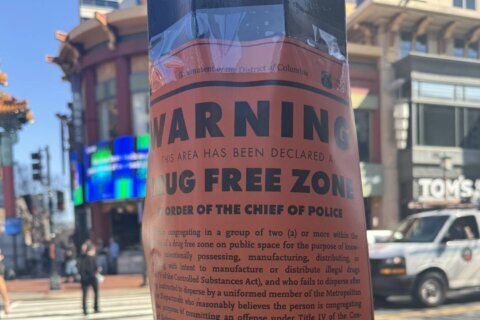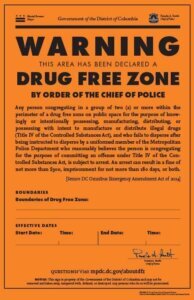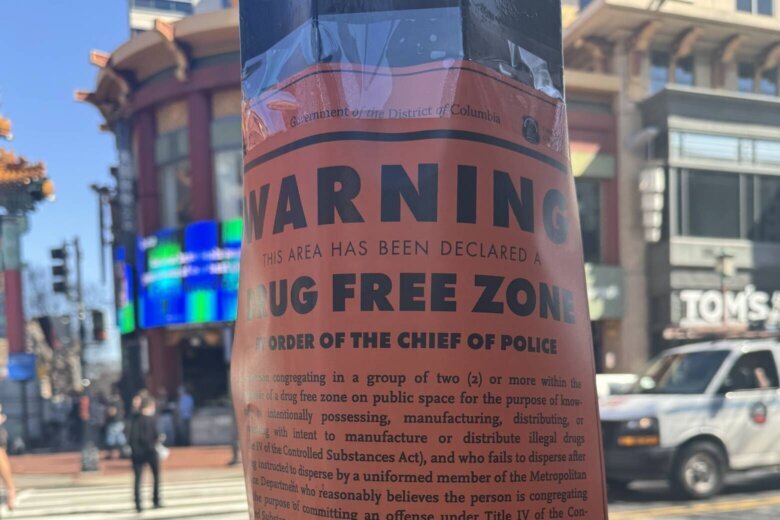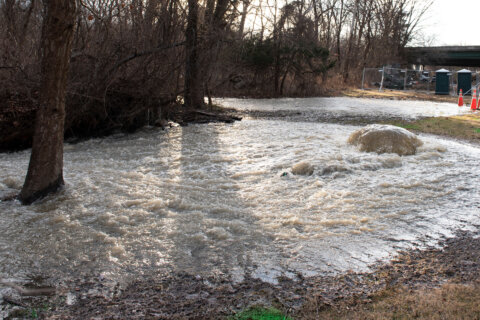
Big orange signs have gone up declaring three D.C. neighborhoods “drug-free zones,” where police can more easily arrest people suspected of illegal drug activity if they refuse to leave the area.
The drug-free zones were authorized by the sweeping anti-crime bill approved by the D.C. Council last week. Police say the measure is a tool “to help communities reclaim their public spaces.”
The first three neighborhoods to be designated drug-free zones are:
- Gallery Place-Chinatown area of Northwest D.C.;
- Minnesota Avenue-Benning Road area in Northeast D.C.; and
- Woodland Terrace in Southeast D.C.
Here’s how police say the drug-free zones will work:
In an area designated a drug-free zone, police can require people congregating in groups of two or more — and who are believed to be involved in illegal drug activity — to leave the area. Anyone who refuses to leave after the first warning is subject to arrest.
“We did not have that ability before the law was implemented,” said Jeffery Carroll, executive assistant police chief, during a news conference late Thursday morning.
Officers have to consider the “totality of the circumstances” in determining whether they believe people are engaged in illegal drug activity. That could include witnessing a hand-to-hand drug sale, information from a reliable source or an officer’s knowledge of a person’s prior drug convictions, police said.
How does it differ from what police could already do?

“If you saw a hand-to-hand transaction, that would not necessarily be enough to arrest the person,” Carroll said. However, under the new drug-free zone measure, it would be enough to approach the person and talk to them, Carroll said. If the officer has additional information that leads them to believe the person is violating drug laws, then the officer can order the person to leave the area.
Carroll said the goal of the new drug-free zones is to bring community awareness to drug activity and provide a more visible police presence in certain areas.
He stressed the drug-free zones are not an anti-loitering measure and it won’t be illegal to simply be in a drug-free zone.
“Simply being in the zone is not a violation of law,” he said.
The drug-free zones are designated by the police chief and will be chosen based on the number of drug arrests, the number of calls for service, and the violent crime rate in that particular area.
Police acknowledge it is a short-term solution. Once declared, a drug-free zone is limited to five days and it cannot exceed 1,000 square feet.
The penalty for failing to disperse when ordered to do so is a $300 fine or six months in jail.
Get breaking news and daily headlines delivered to your email inbox by signing up here.
© 2024 WTOP. All Rights Reserved. This website is not intended for users located within the European Economic Area.









